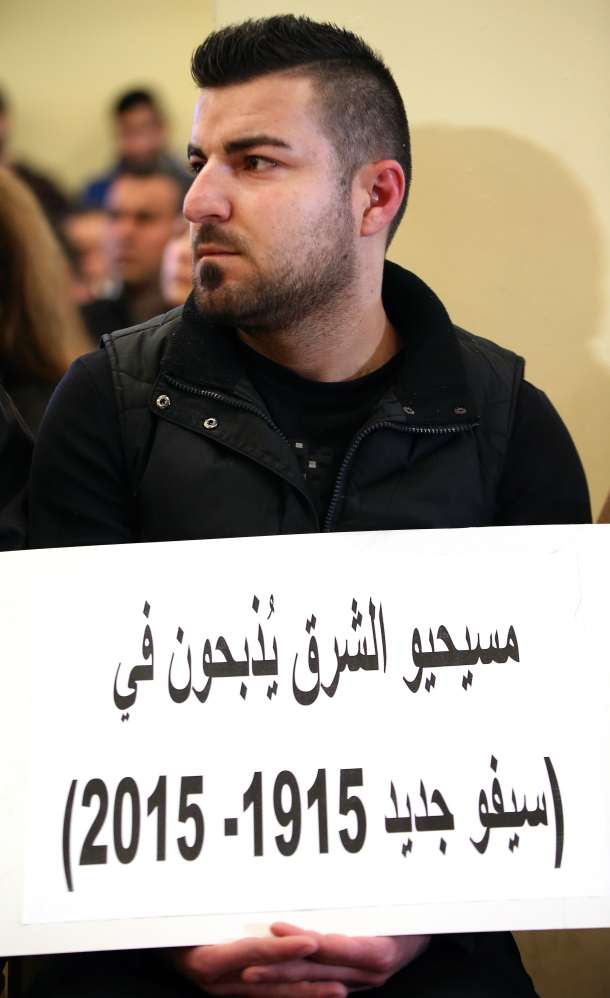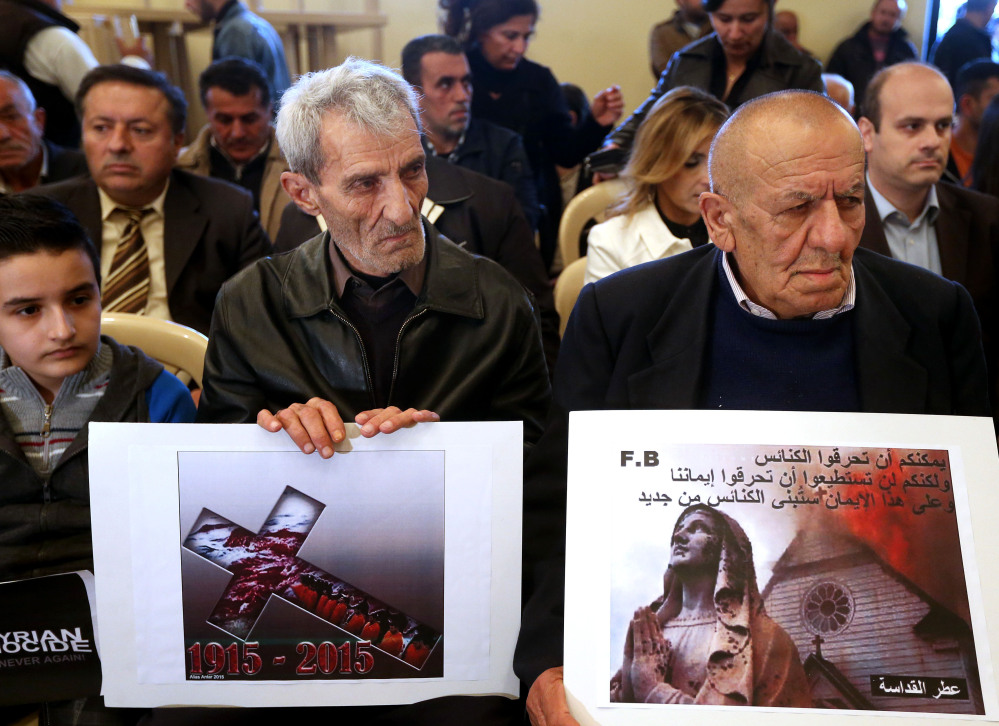BEIRUT — Backed by U.S.-led coalition airstrikes, Kurdish fighters fought their way Friday into a northeastern Syrian town that was a key stronghold of Islamic State militants, only days after the group abducted dozens of Christians in the volatile region, Syrian activists and Kurdish officials said.
The victory marks a second blow to the extremist IS group in a month, highlighting the growing role of Syria’s Kurds as the most effective fighting force against the Islamic State. In January, Kurdish forces drove IS militants from the town of Kobani near the Turkish border after a months-long fight, dealing a very public defeat to the extremists.
But it is also tempered by this week’s horrific abductions by IS militants of more than 220 Christian Assyrians in the same area, along the fluid and fast-shifting front line in Syria.
The town of Tel Hamees in Syria’s northeastern Hassakeh province is strategically important because it links territory controlled by IS in Syria and Iraq.
The province, which borders Turkey and Iraq, is predominantly Kurdish but also has populations of Arabs and predominantly Christian Assyrians and Armenians.
“We are now combing the town for explosives and remnants of terrorists,” said Redur Khalil, a spokesman for the Kurdish fighters, known as the People’s Protection Units or YPG.
Speaking over the phone from the outskirts of Tel Hamees, he said the town was a key stronghold for IS and had served as a staging ground for the group’s operations in the Iraqi town of Sinjar and the city of Mosul.
SUPPLY LINE DISRUPTED
Dislodging the group from Tel Hamees cuts a supply line from Iraq, Khalil said.
The push on the town’s eastern and southeastern edges came after the Kurdish troops, working with Christian militias and Arab tribal fighters, seized dozens of nearby villages from the Islamic State extremists. U.S.-led coalition forces provided cover, striking at IS infrastructure in the region for days.
More than 200 militants died in the fighting, as well as at least eight troops fighting alongside YPG, including an Australian national who has been with the Kurdish forces for three months, Khalil said.
The British-based Syrian Observatory for Human Rights, which relies on a network of activists inside Syria, said IS defenses collapsed and the militants fled after Kurdish fighters broke into Tel Hamees from the east and south.
The observatory’s director, Rami Abdurrahman, said the Kurds seized more than 100 villages around Tel Hamees and that ground battles and airstrikes around the town have killed at least 175 IS fighters in the past several days in some of the latest losses for the group since Kobani.
Some 15,000 villagers have fled the fighting, he added.
The Kurds in Syria and Iraq have emerged as the most effective force fighting IS, which controls about a third of Iraq and Syria – much of it captured in a lightning blitz last spring and summer, as Iraqi army forces melted away in the face of the militant onslaught.
CAPTIVES’ FATE UNKNOWN
In Syria, Kurds have teamed up with moderate rebels for territorial gains against the group.
Elsewhere in Hassakeh, IS fighters this week captured dozens of mostly Christian villages to the west of Tel Hamees – taking at least 220 Assyrian Christians hostage, according to activists. The fate of those abducted was still unknown.
On Thursday, video emerged of IS militants smashing ancient Mesopotamian artifacts in a museum in Mosul, Iraq’s second largest city.
The U.N. Security Council strongly condemned the ongoing “barbaric terrorist acts” by the Islamic State group, including attacks “and the deliberate destruction of irreplaceable religious and cultural artifacts housed in the Mosul Museum and burning of thousands of books and rare manuscripts from the Mosul Library.”
A council statement said income from looted cultural items in Iraq and Syria is being used to support the group’s recruitment efforts and strengthen its ability to organize and carry out terrorism acts.
“The members of the Security Council stressed again that ISIL must be defeated and that the intolerance, violence, and hatred it espouses must be stamped out,” the statement said, using one of several alternative acronyms for the group.
Irina Bokova, the head of the U.N. cultural agency UNESCO denounced the destruction of ancient artifacts as “cultural cleansing” and a war crime that the world must punish.
Send questions/comments to the editors.




Success. Please wait for the page to reload. If the page does not reload within 5 seconds, please refresh the page.
Enter your email and password to access comments.
Hi, to comment on stories you must . This profile is in addition to your subscription and website login.
Already have a commenting profile? .
Invalid username/password.
Please check your email to confirm and complete your registration.
Only subscribers are eligible to post comments. Please subscribe or login first for digital access. Here’s why.
Use the form below to reset your password. When you've submitted your account email, we will send an email with a reset code.